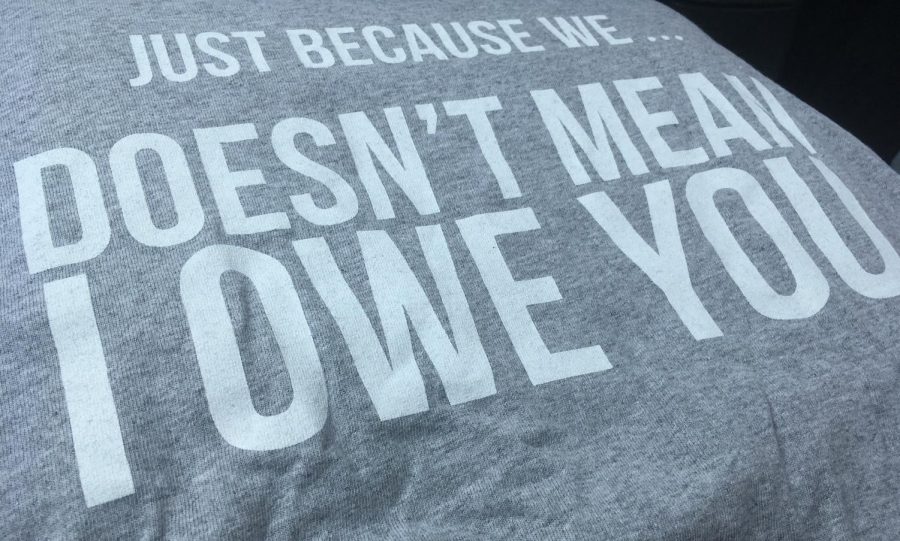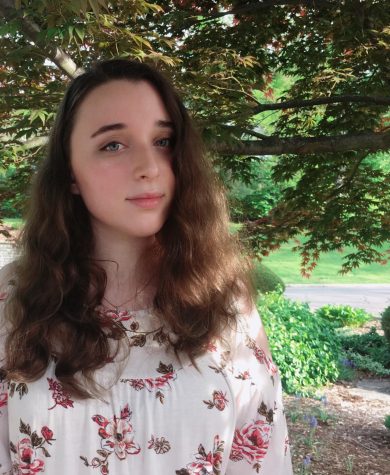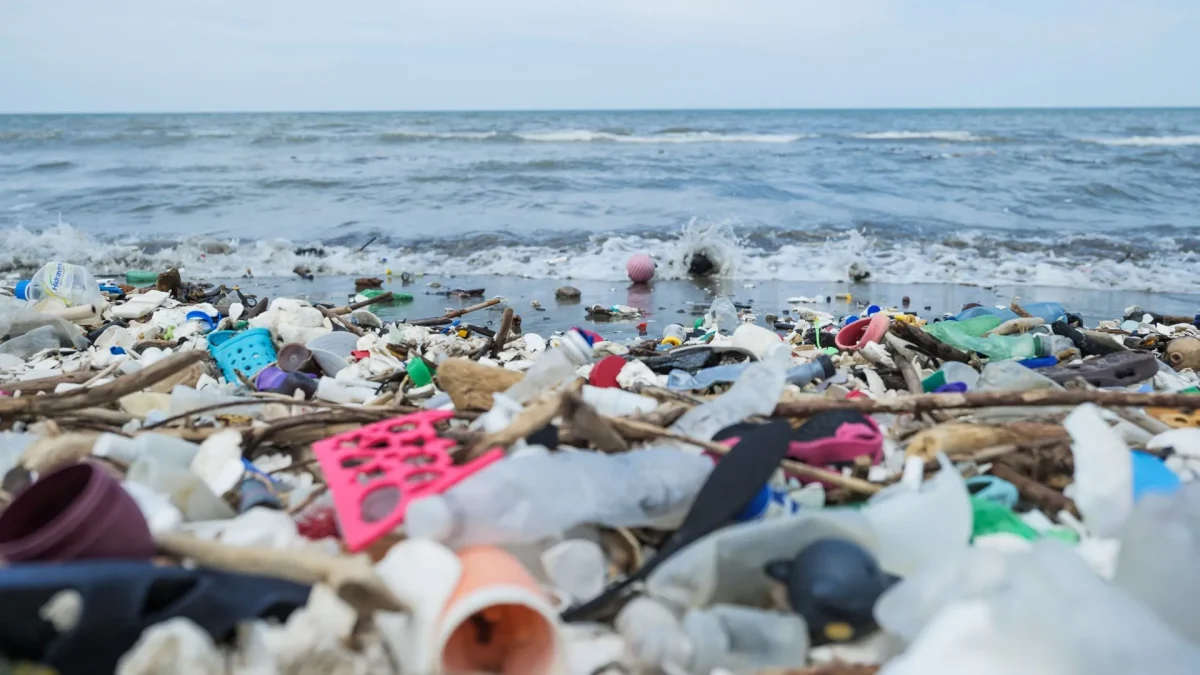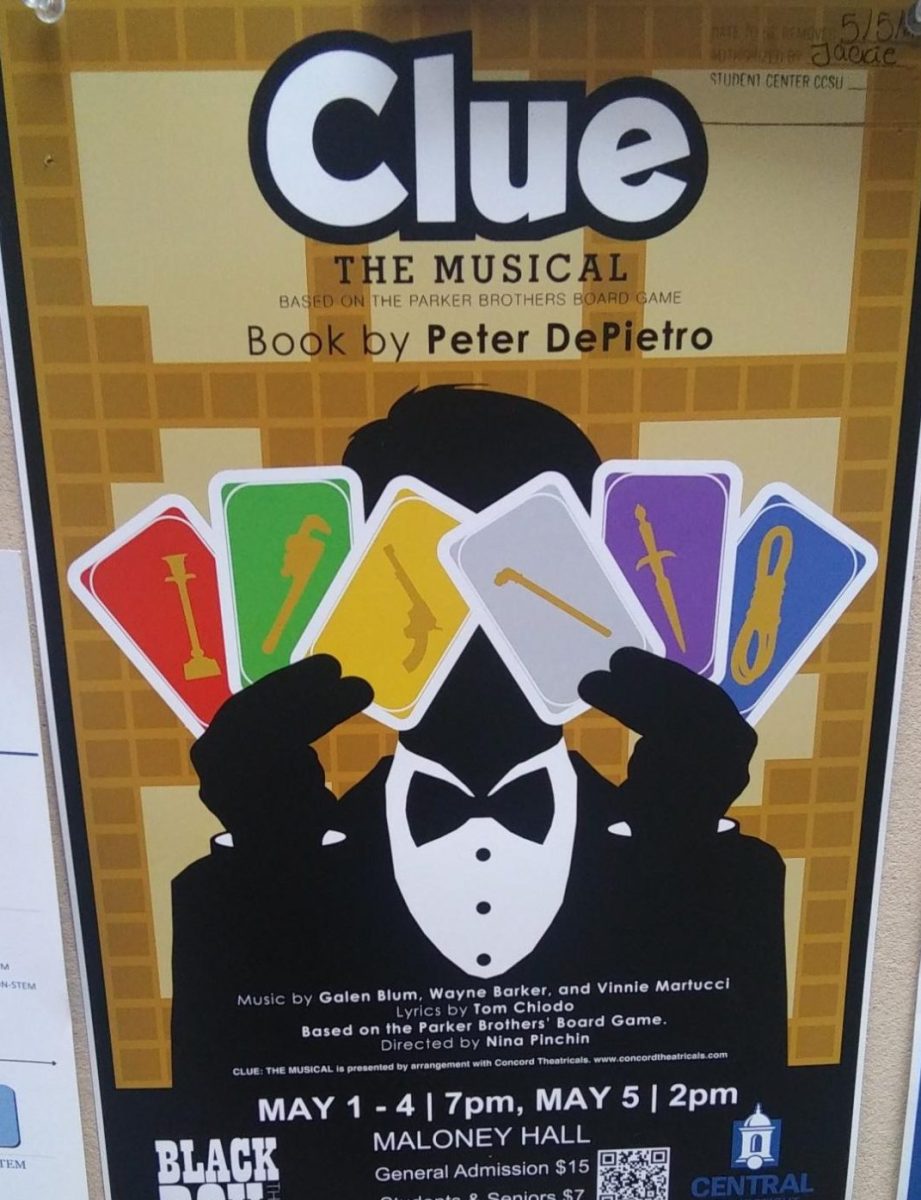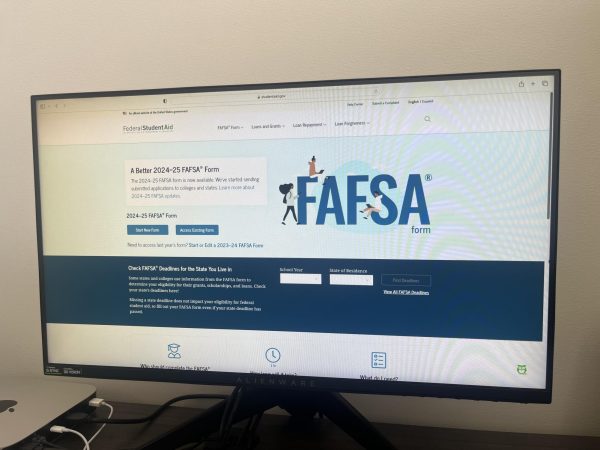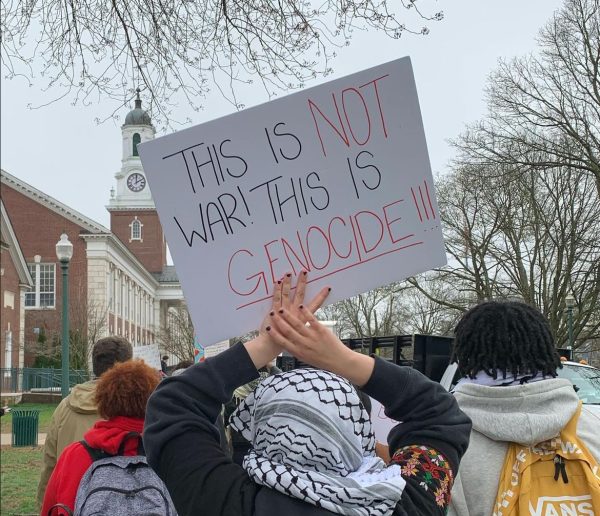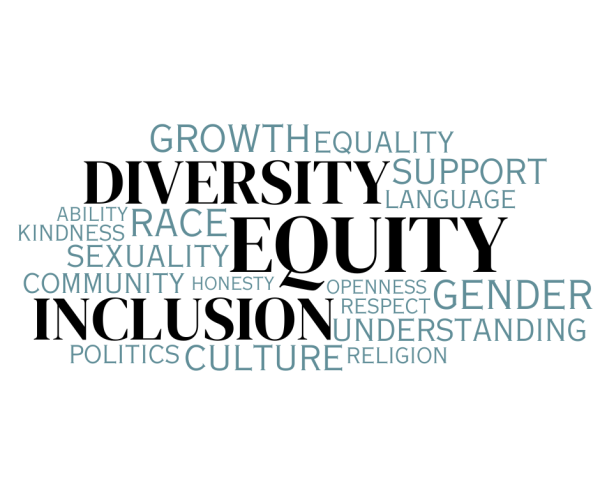Women’s Center Says You Don’t Owe Your Body To Anyone
The “I Don’t Owe You” campaign addresses the sense of entitlement some feel to sex.
April 23, 2019
Male or female, your body is yours and yours alone. Central Connecticut’s Ruthe Boyea Women’s Center wants you to remember that with its “I Don’t Owe You” campaign.
“Payment for what you’ve done is not my body,” Women’s Center Director Jacqueline Cobbina-Boivin said in an interview. “That sense of entitlement that many people feel is what [the campaign is] addressing and the rape culture.”
The “I Don’t Owe You” campaign originated from the Avalon Sexual Assault Centre in Canada. Their website describes it as “a sexualized violence/abuse awareness and prevention campaign that focuses on the complexities of sexual consent, misogyny, male entitlement, bodily autonomy, and empowerment.”
The campaign explores scenarios where individuals may feel coerced into sex and places them in picture form onto posters with slogans such as, “Just because we Netflix and Chilled, doesn’t mean I owe you” and, “Just because you asked for pics and I sent them, doesn’t mean I owe you.”
The Women’s Center brought the campaign to CCSU, Cobbina-Boivin said, to “address rape culture and to empower students.”
“It encourages people to recognize that they don’t owe their partners anything,” Cobbina-Boivin explained, adding that the campaign is especially important for first-year students who may feel obligated to do things they normally wouldn’t. “When they come to campus and someone is making them feel pressured to engage in behavior, this poster campaign will let them realize and help them say, ‘I don’t owe you.'”
That “pressured consent,” Cobbina-Boivin furthered, is not actual consent, but instead exploitative. And through the aid of the campaign, Cobbina-Boivin said that students will learn to spot and avoid this harassing persuasion, particularly in this current campus climate where there have been sexual misconduct findings involving multiple male CCSU professors.
“[The campaign is] important in letting perpetrators know that, ‘Do not think you’re going to be able to manipulate us.’ We now understand and we know that form of manipulation is perpetrator behavior and we’re not going to stand for it,” Cobbina-Boivin stated.
“The assertiveness and the knowledge that you have the support of the campus community behind you says a lot to potential perpetrators,” she went on.
Moreover, Cobbina-Boivin elaborated that while CCSU’s culture is not exactly unique to its campus, what is different is President Dr. Zulma Toro’s hard stance against it.
“Our president is making people aware that this behavior, if found out, will not be tolerated – that she’s supporting victims,” she said. “In my years of doing this work, I think that’s what makes us different. Other universities are addressing it, but maybe not the same way that CCSU’s addressing it.”
Therefore, Cobbina-Boivin continued, the posters found last week across campus labeling Dr. Toro as promoting “‘rape culture’ propaganda” are detrimental not only to Dr. Toro’s work and transparency, but also to the students she’s trying to protect.
“It is impossible to [push ‘rape culture propaganda’] if you have no victims. It’s victims coming forward and it’s not [Dr. Toro] articulating that this happened. It’s actual human beings who are sharing what has happened to them. To say that’s propaganda is to deny those individuals of their negative experience,” she said.
But in the end, Cobbina-Boivin hopes that the “I Don’t Owe You” campaign will reinforce and empower CCSU community members “to know that they have the support of the Women’s Center.”
“They don’t owe anyone anything, especially not their bodies. And no one is entitled to our bodies,” Cobbina-Boivin said.
The Ruthe Boyea Women’s Center is located in the Student Center in Room 215.
